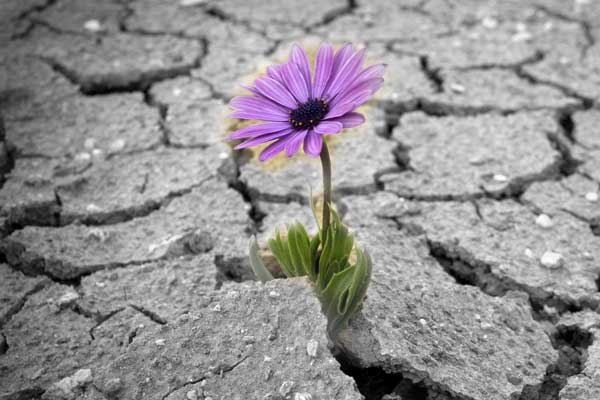Less than two short years ago it seemed inconceivable that anything could rock the established regimes of the Middle East; the phrase Arab Spring meant nothing more than a season. Since then, this remarkable wave of protest has given voice to the people, long suppressed. This spirit of change and renewal has led to the overturning of some of the cruelest and longest-serving regimes in the Middle East and North Africa. The energy of the Arab Spring also lent inspiration to the Occupy Wall Street movement which spread at one point to over one thousand cities around the world.
Prophets (peace be upon them) pioneered social change and dedicated their lives to the struggle against the injustices of their time
Exploring these events from an Islamic perspective can be quite instructive: What does Islam say about the rights (or obligations) of the individual to speak up about injustice by a ruler? What is the role of activism and protest in a healthy society? Is it permissible? Are there any guidelines? What do the Quran, Sunnah, scholars, and our Islamic history have to say about it? Can I as a Muslim take part in my local Occupy movement?
While Islam does allow for protests, it does so with great care as a matter of serious responsibility – with strict guidelines
to protect against social and political anarchy
The short answer is a clear “Yes.” Islam absolutely allows for protest against an unjust ruler – and even encourages and enjoins it depending on the circumstance. Abu Saeed Al-Khudaray (may Allah be pleased with him) reported that the messenger of Allah (peace be upon him) said “The best form of struggle is a word of justice spoken to a tyrant ruler.”
The Prophet (pbuh) also said, as narrated by Abu Saeed Al-Khudaray, “Whoever of you sees a wrong should correct it with his hand. If he cannot, then with his tongue. If he cannot, then with his heart. And that (mere rejection in the heart) is the weakest level of belief.” As a matter of fact, most of the prophets pioneered social change and dedicated their lives to the struggle against the injustices of their time, with the guidance of Allah (swt) who has told us, “You are the best community sent forth unto mankind – enjoin what is right, forbid what is wrong, and believe in Allah” (Qur’an 3:110).
Some of our major scholars led protests against unjust rulers in their time including Imam Malik, Imam Abu Hanifa, Ibn Taymeyah, Imam Izzuddin Ibn AbdusSalaam, and Zainab Al-Ghazali, the 20th century Egyptian activist who was jailed and tortured during the presidency of Jamal Abdel Nasser. Our contemporary scholars have, in fact, stood in complete support of the Arab Spring to date. And all of them endorse the struggle of the Syrian Free Army – except for the handful known as “scholars of the tyrant.”
While Islam does allow for protests, it does so with great care as a matter of serious responsibility – with strict guidelines to protect against social and political anarchy. As a matter of fact, social disobedience is only an option of last resort. Ibn Abbas (may Allah be pleased with him) reported that the messenger (peace be upon him) said “Whomever dislikes something from their ruler, then let them remain patient with him(the ruler), because anyone who splits away from the jama’ah (the community) as far as a handspan and dies in that state, he dies in Jahiliyya.”Note that the hadith refers to something that one “dislikes” from or about a ruler. For that degree of discontent — not liking some policy, disagreeing with some decision —patience is appropriate. Indeed, the decision to move beyond patience with the shortcomings or errors of the governing party ,to take action, to protest, comes down to a question of degree and balance: the degree of severity of wrongdoing or corruption; and the proportional relation between the potential benefit and the conceivable harm of any course of action. A protest leading to a change in government will have major repercussions on the everyday lives of all citizens – as we have seen in Tunisia, Egypt, Libya, Yemen, and these days so very much in Syria. If the society is not prepared for that transition, a state of civil war or anarchy could prevail, with potentially dire results. Yet the cost of silence or inaction may be far worse.
It is the responsibility of the elders, scholars, and trusted leaders of the people to weigh and balance these factors. This is – admittedly – a very difficult judgment call. The remedy needed by a society must take into account how severe and deep-rooted the corruption or problems are in the political system. If the majority of people can still live with dignity and in relative security with basic survival necessities met, then patience should prevail, and efforts made within the system to improve it and effect change. On the other hand, when corruption and tyranny prevail, and the majority suffers its oppression without other means to improve their situation, stronger measures may be called for.
In speaking out, or moving to effect political change, the elders, scholars, and the people as a whole must consider the following:
- What means of effecting change are available, both inside and outside the established channels?
- What are the freedoms of expression, of press, of assembly, where points of view can be freely discussed without fear of retribution? Can a citizen gain the ear of the leader to share a need, concern, or critique?
- What input do the people have on choosing their leaders? Is thepolitical system truly free and fair? Is the electoral process transparent and accountable to the people?
- What is the level of education among the people, and how well-informed are they?
- Are the people energized, mobilized, and ready to stand up for their rights?
- Is there an organizational apparatus in place to support their efforts, and fundraising mechanisms to keep the endeavor going long-term if necessary?
- What means of communication, including social and mass media, are available, within the movement and in order to reach the population at large?
Of course events on the ground sometimes arise organically and take on form and momentum before planning takes place, as was the case with the Arab Spring. The recent uprisings were sparked when a police officer confiscated the wares of a simple street vendor. After decades of repression and suffering, the people at large effectively decided that they were ready to pay the price to end the overbearing injustice that had burdened them for so many decades. Most believed the Quran verse that applied here was “Allah does not change the condition of a people until they change what is in their own hearts” (Qur’an 13:11).
Now the citizens of Syria — our brothers and sisters, young and old — are suffering the greatest oppression imaginable. While the scenes and stories of the killed and wounded are beyond what any beating heart can bear, we are confident that insha’Allah it is for the longer-term good for the Muslim nation of Syria and the Muslim community at large. We believe, of course, that those killed are in Jannah insha’Allah. That is our solace; our responsibility is to support the Syrians in whatever way we are able.
As for the Occupy movement, it was a predictable response to economic injustice. For years, Western societies enjoyed relative social justice and economic prosperity. Opportunities were available for all who wished to work hard and strive for success. This balance started to gradually falter in the 1980s. Economic stability and growth and a large middle class began to erode as corruption spread throughout the financial industry. Millions of Americans are now paying for the ignoble actions of the greedy and power-hungry elites.
The Occupy movement is generally a grass-roots movement of the people who no longer see a fair and equitable system. Participating in the Occupy Wall Street or other similar demonstrations is Islamically permissible as long as proper etiquette, ethical behavior, and God-consciousness is maintained, including:
- not damaging any property – whether public or private
- not engaging in any sort of aggression against others
- respecting the rights of all – including the opposition
- maintaining awareness at all times that one is accountable to Allah (swt) for his or her actions
- purifying one’s intention so that motives are solely to enjoin the right and forbid the wrong
In summary, the Islamic approach is to maintain social cohesion, avoid chaos and anarchy as much as possible, and pursue correcting the wrongs in just and productive ways. May Allah purify the intentions and unite the hearts of the people in Syria and grant them victory in their struggle for freedom. And may He grant wisdom to people everywhere who seek to free themselves from those who exploit and oppress.






